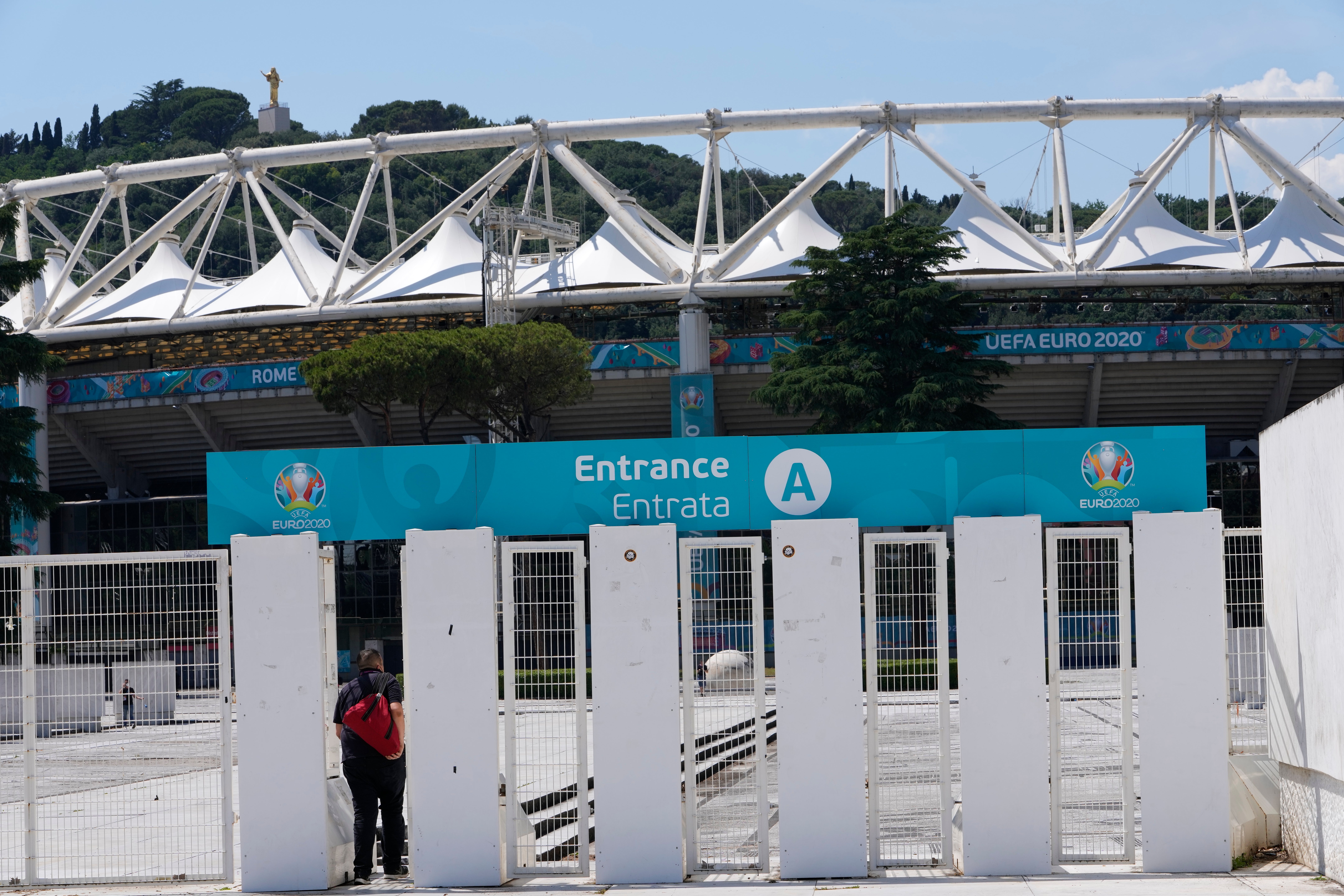Police at nerve center in The Hague share Euro 2020 intel
Policing a 24-team soccer tournament in 11 cities scattered across 10 countries was always going to be tough even before the coronavirus pandemic compounded the challenges facing law enforcement authorities overseeing the European Championship

Your support helps us to tell the story
From reproductive rights to climate change to Big Tech, The Independent is on the ground when the story is developing. Whether it's investigating the financials of Elon Musk's pro-Trump PAC or producing our latest documentary, 'The A Word', which shines a light on the American women fighting for reproductive rights, we know how important it is to parse out the facts from the messaging.
At such a critical moment in US history, we need reporters on the ground. Your donation allows us to keep sending journalists to speak to both sides of the story.
The Independent is trusted by Americans across the entire political spectrum. And unlike many other quality news outlets, we choose not to lock Americans out of our reporting and analysis with paywalls. We believe quality journalism should be available to everyone, paid for by those who can afford it.
Your support makes all the difference.Policing a 24-team soccer tournament in 11 cities scattered across 10 countries was always going to be tough even before the coronavirus pandemic compounded the challenges facing law enforcement authorities overseeing the European Championship.
Europol the European Union police agency, has created a nerve center of about 40 police liaison officers from 22 nations for the tournament, which opens Friday in Rome and ends on July 11 at Wembley Stadium in London.
“The current Euro 2020 championship is of an unprecedented complexity," Europol executive director Catherine De Bolle said Thursday.
“It is the first ever championship organized by 10 different countries instead of only one or two, as we had seen in past editions,” De Bolle said. "It is also the first large-scale event organized during the COVID-19 pandemic related to sports. And all this, of course, presents important security challenges.”
In Europol's main meeting room near the North Sea beaches of The Hague liaison officers are working together to counter any threats that emerge by instantly sharing intelligence.
Their desks are socially distanced and arranged into Euro 2020 groups. For example, Italy, Switzerland, Turkey and Wales are seated together, reflecting the makeup of the tournament's Group A. The officers will be working in shifts almost around the clock throughout the tournament. Starting at 8 a.m. and finishing only when they're certain all fans have gotten home safely.
Large screens and televisions are spread around all four walls so they can watch matches and instantly identify trouble. They will be sharing intelligence, including from a network of about 500 “spotters” who track movements of fans.
One side effect of the pandemic is that there will be fewer fans to track because of stadium seating limitations.
But that has not led to law enforcement authorities letting down their guard, especially after hooliganism marred the last European Championship in France, where England and Russia were threatened with expulsion from the tournament following violent clashes in Marseille.
As part of the vigilance, Europol also has set up a task force to tackle threats including cybercrime, terrorism, match-fixing, trafficking counterfeit goods including fake COVID-19 certificates, and other intellectual property crimes, the organization said.
The International Police Cooperation Center at Europol brings together not just EU nations but also those outside the 27-nation bloc, like Russia and Britain.
Adrian Roberts, assistant director of the UK Football Policing Unit, stressed that the Brexit split between Britain and the EU has not hurt intelligence sharing.
“Brexit no has no effect whatsoever on the really important business that we do ... with all other countries,” he said.
Roberts and other officials at the official opening of the nerve center said they have no indications of possible fan trouble at the tournament. But he conceded that the pandemic that has largely kept fans from stadiums around the world for much of this season could be limiting police insights.
“I think the risk is larger because of the COVID situation," he said, "because all of the intelligence that maybe we might have had at an earlier stage by now, it’s all in the unknown.”
___
More AP soccer: https://apnews.com/hub/soccer and https://twitter.com/AP_Sports